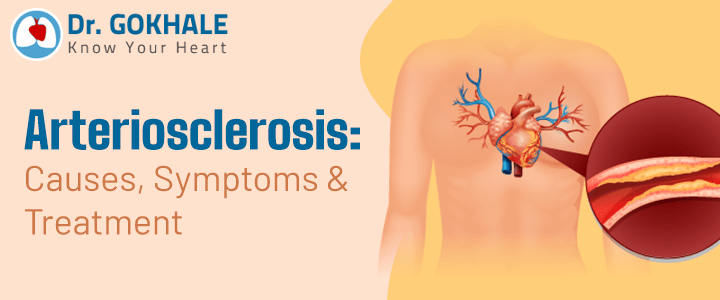Arteriosclerosis, commonly known as the hardening of the arteries, is a condition that involves the thickening and loss of elasticity of the arterial walls. This progressive disease can lead to serious health complications, including heart attacks, strokes, and peripheral vascular disease. Understanding its causes, recognizing its symptoms, and seeking appropriate treatment are crucial steps in managing this condition.
Causes of Arteriosclerosis
Arteriosclerosis causes develops over time and can be influenced by various factors, including:
- High Blood Pressure (Hypertension): Constant high pressure can damage the inner walls of the arteries.
- High Cholesterol: Excess cholesterol can lead to plaque formation, narrowing the arteries.
- Smoking: Tobacco use contributes to arterial damage and accelerates the hardening process.
- Diabetes: High blood sugar levels can harm the arteries, promoting arteriosclerosis.
- Inflammation: Conditions such as arthritis or infections can cause inflammation in the arteries.
- Genetic Factors: A family history of cardiovascular diseases can increase the risk.
- Lifestyle Factors: Lack of physical activity, unhealthy diet, and obesity contribute significantly to the development of arteriosclerosis.
Symptoms of Arteriosclerosis
In its early stages, arteriosclerosis symptoms may not present noticeable symptoms. As the condition progresses, symptoms depend on the affected arteries:
- Coronary Arteries: Chest pain or angina, shortness of breath, and heart attacks.
- Carotid Arteries: Sudden weakness, numbness, difficulty speaking, or stroke.
- Peripheral Arteries: Leg pain, numbness, and in severe cases, gangrene.
- Renal Arteries: High blood pressure, kidney dysfunction, or kidney failure.
Treatment of Arteriosclerosis
Arteriosclerosis treatment involves lifestyle changes, medications, and in some cases, surgical interventions.
- Lifestyle Changes:
Adopt a heart-healthy diet rich in fruits, vegetables, whole grains, and lean proteins while reducing the intake of saturated fats, trans fats, and cholesterol. Engage in regular physical activity, such as walking, cycling, or swimming, to improve cardiovascular health. Quit smoking to reduce further arterial damage, and maintain a healthy weight to lessen the strain on the heart.
- Medications:
Cholesterol-lowering drugs, such as statins, help reduce cholesterol levels in the blood. Antihypertensive drugs manage high blood pressure, while antiplatelet agents like aspirin prevent blood clots. Proper control of blood sugar levels is crucial for diabetic patients.
- Surgical Interventions:
Surgical interventions for arteriosclerosis include angioplasty, a procedure to open blocked arteries using a balloon and stent; bypass surgery, which involves creating a bypass around blocked arteries using a vessel graft; and endarterectomy, the surgical removal of plaque from the arterial walls.
Expert Care for Arteriosclerosis
For those seeking expert care in managing arteriosclerosis and other complex cardiovascular conditions, Dr. Alla Gopala Krishna Gokhale and his esteemed team at Dr. Gokhale CT Associates offer unparalleled expertise. Based in Apollo Hospitals, Jubilee Hills, Hyderabad, Dr. Gokhale is a renowned figure in cardiothoracic surgery, with a remarkable track record of groundbreaking procedures in India.
If you or a loved one is suffering from advanced coronary artery disease, end-stage heart and lung disorders, or require minimally invasive cardiothoracic surgery, Dr. Gokhale CT Associates stands ready to provide world-class care. Their dedication to exceeding patient expectations ensures that you receive the best possible outcomes in your journey to better health.
 Ask Doctor
Ask Doctor
